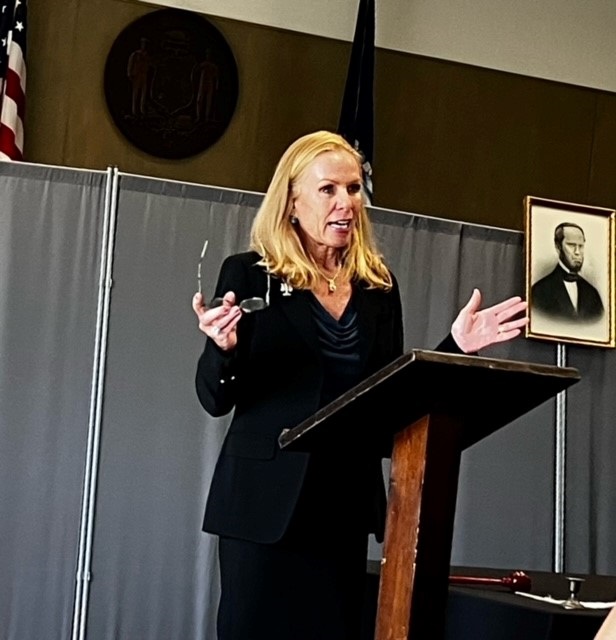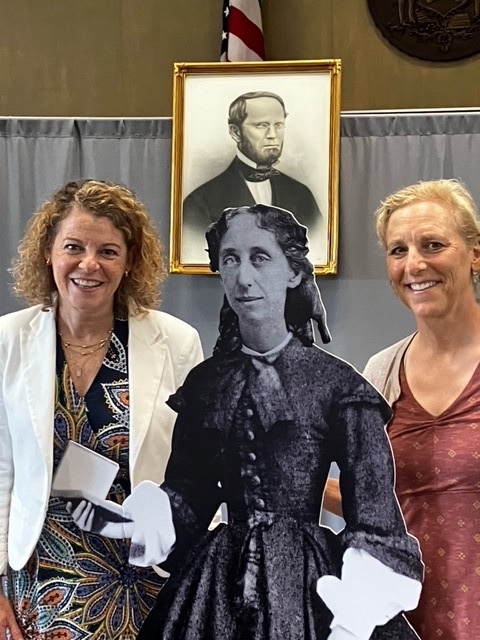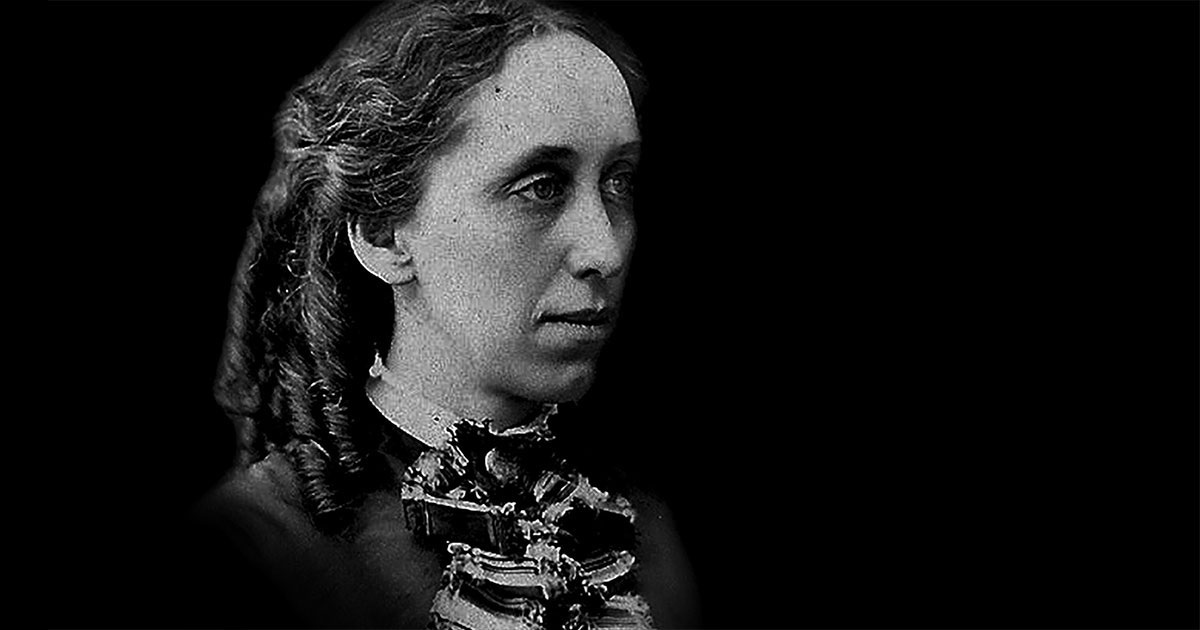As Wisconsin commemorates a significant milestone in its legal history, the spotlight shines on one pioneering figure whose legacy continues to inspire generations. Lavinia Goodell, the first woman admitted to practice law in Wisconsin, remains a beacon of courage and determination as the state celebrates 150 years since her groundbreaking achievement.
Born in 1839 to a family deeply committed to abolitionism, Goodell was raised with a strong belief in justice and equality, which would define her career. She defied societal norms and pursued a career in law during an era when such aspirations were often met with skepticism and opposition. Male lawyers, resistant to the idea of a female colleague, refused to accept her as an apprentice. Undeterred, Goodell embarked on a journey of self-study, honing her legal skills independently.

Goodell's perseverance eventually earned her recognition from a male judge who admitted her to the Rock County Circuit Court. Goodell's admission to the bar was not merely a personal triumph but a watershed moment that paved the way for future generations of women in the legal profession. Chief Justice Annette Kingsland Ziegler said Goodell shattered stereotypes and challenged the status quo, leaving an indelible mark on Wisconsin's legal landscape.
"Despite the societal expectations and legal obstacles of her time, Goodell's intelligence, determination, and hard work paved the way for her historic achievement on June 17, 1874, when she was the first woman admitted to the Wisconsin bar," said Chief Justice Ziegler. "Her pioneering spirit not only marked a significant personal triumph but also laid the groundwork for future generations of women in the legal profession, ultimately leading to greater gender diversity among lawyers, judges, and justices."
Goodell won her first court trial in a landmark moment, showcasing her legal acumen and determination. However, when she appealed a case to the Wisconsin Supreme Court, Goodell encountered yet another barrier—denial of admission due to her gender. Undeterred, she continued to fight for her right to practice law, ultimately leading to a change in legislation that allowed women to become attorneys in Wisconsin. In 1879, Goodell became the first woman admitted to practice before the Wisconsin Supreme Court, marking a significant milestone in the fight for gender equality in the legal profession.
"Lavinia Goodell's journey symbolizes the triumph of perseverance over prejudice, reminding us that barriers are meant to be broken, not accepted," said Justice Rebecca Dallet.
Goodell's impact extends far beyond her groundbreaking accomplishments in the courthouse. She was a tireless advocate for women's rights, using her legal expertise to champion causes such as suffrage, property rights, and access to education. Her advocacy laid the groundwork for future generations of women to pursue careers in law and fight for gender equality.

Justice Jill Karofsky applauded Goodell's courage and tenacity in contesting entrenched norms, saying: "In Wisconsin legal history, Lavinia Goodell's name shines brightly as a pioneer who dared to challenge the status quo and paved the way for generations of women in the legal profession."
As Wisconsin celebrates 150 years of women in the law, Goodell's legacy serves as a poignant reminder of the progress that has been made and the challenges that still lie ahead. While significant strides have been made toward gender equality in the legal profession, disparities and barriers persist, underscoring the importance of continued advocacy and reform.
Justice Janet Protasiewicz said it is essential to recognize the transformative power of Goodell's bravery and perseverance. "Lavinia Goodell continues to inspire the lawyers of this state. She fought to have a voice—and for all women to have a voice—even when presented with obstacles almost no others had cleared. We are living in her legacy today with a robust bar of women lawyers and a predominantly female Wisconsin Supreme Court. We owe a lot to Lavinia Goodell's trailblazing, and we must continue her fight for equality in our justice system and beyond."
Earlier this year, Governor Tony Evers proclaimed June 17, 2024 as Wisconsin Women Lawyers Day. On June 19, the Wisconsin Supreme Court announced that the State Law Library will be named in honor of Goodell, with an official ceremony to be held at a future date.
Other various events and initiatives have been organized across the state to commemorate this historic milestone, including an event in her hometown of Janesville on June 17. The event, sponsored in part by the Women Lawyers of the North, Legal Association for Women, and Association of Women Lawyers, honored Goodell's lasting impact on the legal profession.
In the words of Lavinia Goodell herself, "The true lawyer is indeed a hero, and a hero in the highest sense of the word."
Third Branch eNews is an online monthly newsletter of the Director of State Courts Office. If you are interested in contributing an article about your department’s programs or accomplishments, contact your department head. Information about judicial retirements and judicial obituaries may be submitted to: Sara.Foster@wicourts.gov


